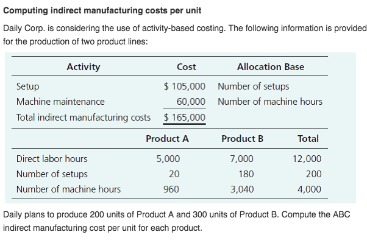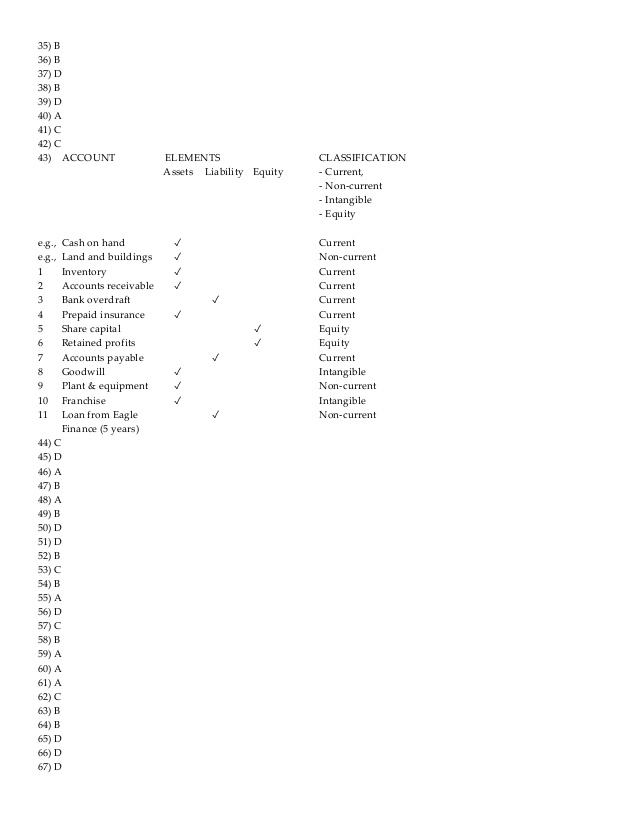Best Accounting Software for Small Businesses of 2024

Also included with every plan is Sage’s own cybersecurity offering, which will keep tabs on your business credit score and monitor for data breaches. Business owners working in construction or manufacturing may be especially drawn to Sage 50’s advanced inventory, job costing, reporting and budgeting capabilities. Here are NerdWallet’s picks for the best small-business accounting software, including why we selected each product, monthly price details and features checklists for easy product comparisons. We’ve also included a couple of solutions that nearly made our list and a few products you can skip. The answers to these questions can further impact accounting for cloud computing arrangements. Further, an organization should determine whether or not its arrangement contains a lease of equipment.
Zoho Books Pricing

You won’t need to install the software over and over, and many of these programs come with built-in tutorials, making training much easier for the whole team. In order to collaborate with clients, files have to be emailed back and forth and then added back into the software. And if anything happens to the office computers on which the software is installed, teams could stand to lose all of their work. In today’s rapidly evolving business landscape, cloud finance solutions have emerged as indispensable tools for organizations seeking to optimize their financial operations.
of customers save time by connecting apps to QuickBooks*
Local accounting software, bound to a computer in your office, is no longer sufficient. Transitioning to a cloud-based finance system may seem daunting, but the benefits far outweigh the challenges. While the implementation process shares similarities with traditional on-premise setups, the advantages of cloud-based solutions are exponential. With careful planning and execution, cloud finance implementations offer unique advantages driven by fundamental architectural differences. These differences underscore the core reasons for embracing the cloud, making them essential considerations for businesses evaluating finance solutions. If you are running a service-based or consulting business and you need excellent time tracking capability, or you are on a tight budget but you want to find a free plan with unlimited invoices, ZipBooks might be your best option.
How do I choose the best cloud accounting software for my business?
While we found NetSuite offers advanced tools and capabilities beyond many cheaper alternatives, the UI can be quite busy and might require some time to navigate effectively. Additionally, business owners may need to engage a consultant to leverage NetSuite’s extensive features fully. In 2024, FreshBooks introduced several enhancements, including a partnership with Gusto for FreshBooks Payroll. This allows U.S. businesses to handle payroll, tax filings, and labor compliance within the platform. Additionally, FreshBooks integrates with over 100 third-party apps, though point-of-sale integration options are limited.

Managing multiple social media accounts can increase your brand exposure. By liking, sharing, and reposting your content, you spread it further than a single account can. These operations mean you can better engage with clients and create logins dedicated to specific aspects of your brand.
- This cloud accounting software makes it very easy to create customized, professional invoices and send them to clients, then accept full or partial payments through credit cards and ACH payments.
- This lets them save and comment on invoices, save their payment information, invite others to access the account and collaborate on projects they’ve been invited to view.
- This feature connects the software to your business bank and credit card accounts to provide a daily update of your transactions.
- This streamlines workflow and allows you to ask your advisor or accountant questions directly, all based on the most up-to-date versions of documents.
QuickBooks cloud accounting software provides automatic software updates and there are no big spikes in costs when your business expands. As with most types of software, the best cloud accounting software programs offer many levels of security. There are four basic areas you should consider when choosing a cloud accounting software solution. The first is cost, as every company needs to find something that fits into its overall budget.
Most cloud accounting software includes this feature in some capacity, though some impose limits on lower tier plans or require a paid add-on for things like mobile receipt capture. A mobile app is a crucial feature of cloud accounting software, and Zoho Books nails it in this area. QuickBooks Online is an industry leader in the accounting field, thanks to its strong feature set and scalability. In addition to core accounting capabilities, it has robust reporting and transaction tracking tools, invoicing capabilities, inventory management features and mobile app functionality.
These platforms also have dashboards that provide an at-a-glance overview of key financial aspects, like accounts receivable, accounts payable, historical sales data and cash flow. Small business accounting software is also useful for tax management, as it ensures that you accurately estimate your tax liabilities and save money accordingly. The best proforma invoice template accounting software integrates with other key business systems, like payroll software and HR software, thereby eliminating the need to enter the same data manually in multiple systems. To choose our list of the best accounting software, our small business experts spent hours researching and testing some of the most popular solutions on the market.
Open-source products, like Odoo, are ideal for business owners who know how to code and want to play a hands-on role in customizing the product to fit their business needs. Annual subscriptions are expensive; each additional user license and cloud access costs extra. No third-party integrations, mileage tracking feature or ability to accept in-person card payments. Before joining NerdWallet in 2020, Sally was the editorial director at Fundera, where she built and led a team focused on small-business content and specializing in business financing. We believe everyone should be able to make financial decisions with confidence. Chiriatti added that hybrid arrangements require companies’ close attention as well.
From collaboration to secure data storage, learn more about cloud accounting. QuickBooks Online is cloud accounting software that helps you take care of your finances and does the number crunching for you. The key difference is that cloud accounting software is not installed on any https://www.online-accounting.net/ one computer, but rather, it’s stored in the cloud and accessible through a remote user portal. Because of this, accounting teams don’t have to work in the same physical space. In fact, they don’t need a physical office at all, which means they don’t need the office equipment.
Its retail solution, for example, includes CRM, inventory management and marketing features to integrate with its accounting platform. But its nonprofit solution includes tools for managing records and scheduling events and even includes a donation portal. And because it’s a cloud-based system, you’ll be able https://www.kelleysbookkeeping.com/what-receipts-to-save-for-taxes-do-s-dont-s/ to access your real-time accounting and other business data on the go from anywhere. Cloud accounting software does the heavy lifting so you can spend your time on other important business tasks. Automatically sync your bank accounts so you don’t have to manually import transactions or verify expenses.
Many of the accounting software platforms we reviewed included a direct line to professional bookkeepers and accountants, giving business owners additional support when managing their books. While Sage does offer some other cloud accounting software products that are suitable for freelancers and small businesses, Sage Intacct is meant for mid-size businesses. Sage Intacct enhances the general ledger with automation and artificial intelligence (AI) to make it easier to manage accounts receivable and payable. The Multi-Entity Insights reporting module provides analytics for growing businesses whose accounting needs are becoming more complex. In terms of accounting capabilities, Odoo includes features like easy cost tracking, recurring invoice management, and auto-synchronization of bank feeds. It supports multiple currencies and payment methods like credit cards, digital wallets, and online banking.

